- Home
- Julie Smith
Jazz Funeral (Skip Langdon #3) (Skip Langdon Mystery) (The Skip Langdon Series) Page 12
Jazz Funeral (Skip Langdon #3) (Skip Langdon Mystery) (The Skip Langdon Series) Read online
Page 12
Then her dad called for that Bud. He’s forgotten, she thought. She could go in there and remind him that Mama had one of her headaches and couldn’t be disturbed. But then he’d get mad. She didn’t know why he got mad about things like that, but he did, and she’d be the one he yelled at.
He’d say, “Shit! Goddamn headache! Goddamn! Again?” She’d try to leave at this point, but he’d say, “Don’t turn your back when I’m talking to you!” And he might throw something. He might do that whether she stood respectfully or whether she tried to get out of the way; there was no way to tell.
The best thing was to bring him the beer herself. She went to the refrigerator. “M’ay Ellen? M’ay Ellen!” Oh, no. There weren’t any more. But there had to be some beer—her father always drank beer when he watched the ball game. It had to be here.
There it was on the table. She remembered now. He’d gone out that morning and gotten it. She pried a can loose from the pack. Warm. He’d be mad about that. He liked his beer good and cold, he was always talking about it. What to do? Ice! She could put ice in it, like tea.
“M’ay Ellen, what’s taking so goddamn long?”
“I’ll just be a minute.”
She pulled a chair up to the refrigerator, stood on it, and opened the freezer door. But the ice tray stuck. It was frozen in there. She had to get down and get a knife to pry it loose. Her dad was yelling again….
The tray came loose so suddenly she fell backward, toppling the chair, hitting the floor. The knife nicked her arm and it started to bleed. She heard her dad’s footsteps, heavy, threatening, like a bear coming to get her.
“What in the hell do you think you’re doing?” (Except he really said “What in the hail,” which she knew was incorrect from watching TV.)
“Just gettin’ you a beer.” She was in trouble; big trouble.
“Look at you! You’re bleedin’. What the hail do you mean you were gettin’ me a beer? You were up in that freezer, weren’t you? What were you doin’ up there?”
“Daddy, the beer was warm. I was just tryin’ to get you ice.”
“Ice! Ice! You don’t put ice in beer! What the hail were you doin’?”
“I was—” She started to pick herself up.
“Don’t lie to me.” His voice rose, his hand went back behind his shoulder, cocked to hit. “Don’t lie to me!”
“Daddy, I was just—”
“You were just. Don’t tell me just.”
Feet hit the floor and heavy steps came fast down the hall, her mother’s, urgent. She looked awful in an old nylon nightgown in the middle of the day, no makeup, hair every which way.
“M’ay Ellen, what the hail is goin’ on here?”
He turned toward her and smacked her hard. Ti-Belle was out the door, fast, the screen slamming behind her. If he caught her, she was dead, but she didn’t think he would. They’d played this scene before, and she’d gotten away. She’d come back crying, sure he’d kill her, and afraid her mama was already dead, overcome with guilt because she’d left her alone with him, but her mama’d gotten away too, the distraction gave her time. She told Ti-Belle she’d done the right thing, to do it again if she ever had to.
“But Mama,” she sobbed, “when he wakes up, he’s gon’ kill me.”
“No, he won’t, honey. He won’t remember a thing.” She pushed Ti-Belle’s hair back behind her ears, just playing with it, nervous. “He’ll be sobered up and sorry as he can be.”
“What’s that mean, Mama?”
“It means the devil won’t be there anymore. You know when he gets like that? That idn’t really Daddy, honey. The devil gets in him and makes him act like that.”
She got away this time, too. Grabbed her bike, hopped on and started pedaling, her dad chasing her down the street, a great big barefoot guy in his shorts, yelling like a crazy man. But a neighbor came out, an older man, and said, “Hey, Bobby, you go back in there where you belong.”
And he had, but by then her mama had probably gone back to the bedroom and locked the door, so she was safe. Ti-Belle was pedaling down the road with the wind in her face, going to a place she knew—a place with a big creek where you could see tadpoles and dragonflies and lots of water bugs. There were trees there, one of them with steps nailed up it by some kids a little older than she was. She could climb up there and sit if she wanted to, just Ti-Belle and the tree, until her heart stopped beating so hard and her face wasn’t red anymore. She sang when she was up in the tree, songs she knew and new songs she made up. She didn’t have to be mad, or sad, or anything when she was singing.
Ti-Belle felt her face now. Was it red? It always had been when she ran for the treehouse.
But how did I know that? There was never a mirror.
It just felt that way, she decided. But it didn’t now. She was cool as cucumber ice cream. But she had to take stock. She focused: Ham was dead and so was that part of her life. Fine. Good.
It sounds cold, but I can live with it.
Anyway, he isn’t the first.
There had been another time when this had happened.
Jesus Christ. Proctor! Things were bad enough with Proctor here before this, but what now?
The shit was going to hit the fan in a way Ti-Belle couldn’t imagine in her wildest flights of ballad-writing.
Oh, Jesus, oh, Mama!
Why hadn’t she thought of it before? Proctor was going to destroy her.
She parked the car and got out, enjoying the breeze, distracted, thinking for a moment it might be a benevolent universe after all. It was April in Louisiana, how bad could things be?
No worse. No way.
She had to smile at herself. It was her optimistic nature that had gotten her through so far, but had things ever been anywhere close to this bad?
Yes. They had.
But now she had something to lose—a lot, on several fronts. Money. Love. Fame. Everything she’d always worked for and wanted and thought she’d never get. And Proctor was the one who was going to mess things up.
She walked by the river, taking in the rich smells, feeling the air soft on her skin, like silk, a fabric she’d grown to love lately. Until two days ago her whole life had been silky. Now it was starting to tear apart, to turn rough and ugly. What the hell was she going to do about it?
She was out of her mind with fear and anger. And grief, which surprised her. She was genuinely sorry Ham was dead.
Relatives came and friends went, and George swam through it all. Actually, he was walking and talking, he knew that perfectly well, but he thought of it as swimming. Because the air resisted, as if it was water, and because of the way he experienced things as having a liquid quality, as if seen through water; water that wasn’t quite calm, that rippled and blurred things, threw them all out of focus. He was walking fine, he was talking fine, but nothing seemed solid.
This is probably shock, he thought, and also thought it wasn’t bad, he rather liked it. He couldn’t remember this from the time before, when Dorothy died. All he could remember was searing pain. White-hot, razor-sharp. Maybe it wouldn’t come this time.
Life was so peculiar. If anyone had asked if he loved his wife—if he cared for overweight, homely Dorothy—he’d have said he did, as a pro forma thing. She was the mother of his son, he was a Christian, he must love her. You were supposed to love your wife. He’d never have given it a second thought if she hadn’t badgered him all the time. Did he love her, did he really love her?
Yes, yes, yes, goddammit, Dorothy. Will you just get off my back, I got work to do. We’re poor, haven’t you noticed? What kind of husband can do better than this? Would I work so hard if I didn’t love you? Now leave me alone, goddammit!
That was really the only way the word “love” had come up. He guessed Dorothy was a pretty good wife. She was there, what else was she supposed to be? She said maybe he loved her, but he didn’t cherish her, like he said he would in the marriage ceremony. She wanted to be cherished. And Patty said the same goddam
n thing, or something like it.
Well, hell, he must have cherished Dorothy, he just didn’t realize it. The minute she was gone, it was like a fucking two-ton weight fell on his chest and crushed it. Crushed him. Crippled him. He missed her like a baby misses its mother. It had never once occurred to him that one day she wouldn’t be there. Hell, Ham was only sixteen or seventeen, he couldn’t really remember. Dorothy had been thirty-eight. Nobody dies at thirty-eight. And Ham had died at thirty-four! Was he ever going to learn?
But the thing was, it was the same both times. The love part, the cherish part, the part that was supposed to be all rainbows and little chirping bluebirds, that part you didn’t notice much. It was just there, it was just life, it didn’t really give you pleasure the way your work did, the way your own family did, your brothers and all. That kind of stuff. But wait—something had once. Melody … oh, Jesus, a stab of pain, grief, something bad. Melody, when she’d been a baby, a toddler. That was as close as he’d gotten to “cherish,” he supposed. He used to see her walking on those chubby legs—running, she never walked—and he’d turn to bread pudding, all soft and sweet and squishy. He’d start feeling happy and he’d break out smiling. Just looking at her. That was the only way he could describe it. Just looking at her made him feel happy.
He went to the bar and got himself a scotch.
Nothing else had ever felt that way—not Dorothy, not Ham, certainly not Patty. Dorothy was the first girl he’d slept with. Well, not really the first, but the first Catholic one. And because she was Catholic and came from a real nice family that lived down the street, dressed modest, acted kind of quiet and all that, he knew she meant it. When she made love to him, she really meant it. And that meant a lot to him. That you could make love and both people would really feel different—not like when he knew the girl was just doing it because he wanted her to, or because it was what she did (pretty much screwed everybody)—that was a new idea. That had to be what they meant by love, and he knew damn well it was what she meant, and she was kind of cute and plump, certainly not fat at the time. And she was pregnant. So he married her. Why not? It was what you were supposed to do. And he’d never regretted it. Not once. As he’d told her all the time, whenever she asked. He could honestly say he’d never regretted it. But he still didn’t understand why she didn’t make him smile, like Melody had, yet it hurt so damn much, goddamn nearly killed him when she died.
Now Ham. Ham was another thing entirely. He knew it then, he knew it now, but you didn’t say it if you were a man—he didn’t want Ham. He just flat-out hadn’t thought about what having a kid would be like, and what it was like was a fucking lot of work. He resented that. He had to cook in filthy shitholes to take care of another human being who hadn’t asked his permission to butt in. Then when he saw a way out, it was a goddamn lot harder because there was always a kid tugging at him, wanting stuff, needing stuff. And there was a lot of boring activity you had to do or everybody’d think you were a shit—like go to parents’ night and Little League games.
Ham always needed something. Like a parasite. How the hell were you were supposed to relate to that? To a little boy? Now, a little girl was different—girls were supposed to be pink and helpless and need you. They made it easy—they knew how to charm you and wrap you around their little fingers; for the first few years anyway. He couldn’t remember much about Melody after about age five or six, maybe the time she started school. That was probably it. School. She got involved and didn’t notice her old dad so much any more.
Ham as a young man was a problem. He never seemed to know what he wanted, what he could do. He certainly wasn’t interested in Poor Boys. That would have been the obvious solution—some kind of sinecure George could arrange—but Ham said business bored the pants off him and refused to get his MBA. Didn’t like a damn thing but listening to music, as far as George could see. And goddamn if he hadn’t made it work for him. He had turned himself from a nobody—a worthless, good-for-nothing—into somebody. He was somebody in this town. George was proud of him, heard people talking about him all over town, could barely believe it was really his son they meant. Didn’t see how he’d done it, if truth be told.
That was all well and good, but by then he had hot ideas about how to run the goddamn business, which George had been stupid enough to give him a part of so he wouldn’t starve to death, and which all of a sudden didn’t bore his pants off. Now he knew fucking everything.
George thought about watching Ham onstage at JazzFest, everyone applauding, his son the man of the hour. It was fine. It felt fine. He was glad Ham had turned out all right after all. But Ham still didn’t make him smile, just to look at him. He’d never thought about that before. Why not?
It was because Ham was Ham, that was why. He’d see him up there and then he’d remember stuff—how the kid was always grabbing at his pants when he was in a hurry. Or whatever stupid fucking thing he’d said that morning about the way he thought the business should go. Or how silly he looked in a straw hat and those kind of Caribbean shirts he had made for him. Ham was a grownup, not a cute little baby—and there was a lot of water under the bridge. It was hard to forget that kind of shit.
What distressed him, truly made him sad, maybe even sadder than Ham’s death, was the realization that he’d never had that pleasure, that delighted feeling love was supposed to bring. It was like being cheated—so much pain now, so little pleasure then. He’d had thirty-four years to enjoy being a father, yet he hadn’t. And he knew it couldn’t be because he didn’t love his son; he wouldn’t feel so miserable now if there hadn’t been some feeling. Life was so strange, so unfair.
He sat in a chair by himself, with his drink, and some relatives came over to pay their respects. It was hard to concentrate, hard to think what to say, not to let his mind wander back to whatever deep place it had just visited. And suddenly he realized how tired he was. All day guests, people, friends, relatives, acquaintances, people Patty knew, people he didn’t care about. He wanted to be done with them.
Where was Patty? Maybe she’d get rid of them.
Over there, pouring someone a drink.
He got up and walked over, approaching from the rear, putting an arm around her, leaning close to whisper in her ear, catching her perfume. And to his utter amazement, he felt himself getting hard. This was Patty, his wife of seventeen years. But it was like being with a stranger; or being young again. He couldn’t figure out what the hell it was like. It was just unexpected.
Instead of whispering what he meant to, he said, “I can’t take it any longer. I feel like I’m coming apart.”
She turned quickly, touched his cheek. “Oh, George.”
He held her. “I think I have to go upstairs.”
“Do you need help?”
He had known she would say that, though why a grown man would need help getting up the stairs in his own house, he couldn’t imagine. But he nodded. “Come with me.”
He put his face against her head—her shoulder was too far down—and let her lead him, gracefully fending off the well-meaning and intrusive.
When they were in the bedroom, she started to loosen his tie, but he took her hands away, enfolded her, kissed her with more passion than he had in eight or nine years.
“George!”
“I want you, Patty.”
“You brought me upstairs to make love?”
“Yes.”
“Now?”
“Feel.” He put her hand on his erection.
She stared at him, unbelieving. “I could almost believe you’re glad Ham’s dead.”
He said, “Aren’t you?” And they stared at each other a long moment.
For an answer, she kissed him again, grinding into him like a teenager. George felt strangely exhilarated. He couldn’t remember when he’d been so turned on by Patty, when he’d had so much fun making love to her. The thought of the house full of mourners only excited him more.
As he picked her up and laid her on the bed, the a
nswer to Why?—the question he hadn’t consciously asked himself—came anyway: “So I won’t have to think about Melody.”
He squeezed Patty’s breast, entwined a hand in her hair and yanked—too hard, probably—anything to enhance sensation, to turn his brain off.
I must be dreaming.
Patty tried to remember when he’d made love to her at his own instigation. She couldn’t. It was always her idea, and it was always desultory. Yet, feeling his fingers in her hair, feeling him pull it that way she kind of liked, she felt only annoyance.
How can I do this with a houseful of people?
It’s what you want, isn’t it?
I guess so. But why don’t I feel anything?
She moaned as he stroked her breast. He said her name. He was wrecking her dress.
She started to unbutton his shirt. He stopped her and took off her dress, as she’d known he would.
I know him so well.
The thought almost made her cry, weep with longing for what she’d missed all these years. She wanted so much to enjoy this, and she wanted to please him.
But she was thinking of Melody, and her fear was consuming her. She couldn’t seem to focus like George, and she envied him. She couldn’t stop thinking. Try as she might, she couldn’t turn off her brain.
Why am I doing this?
You know why. Because he wants to.
She’d just read Women Who Love Too Much, and had seen herself so clearly it scared her. She’d thrown the book out. But little lessons from it came back to her now and made her hate herself, despair for her marriage.
“What’s wrong? Patty, what is it?”
She hadn’t even realized she was crying.
“Oh, George, I love you so much.” She wrapped her legs around him, buried her face in his neck.

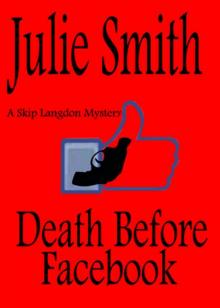 Death Before Facebook (Skip Langdon #4) (Skip Langdon Mystery) (The Skip Langdon Series)
Death Before Facebook (Skip Langdon #4) (Skip Langdon Mystery) (The Skip Langdon Series) P.I. On A Hot Tin Roof
P.I. On A Hot Tin Roof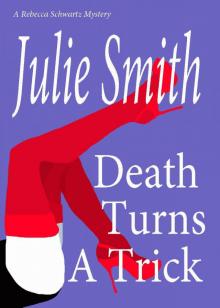 Death Turns A Trick (Rebecca Schwartz #1) (A Rebecca Schwartz Mystery) (The Rebecca Schwartz Series)
Death Turns A Trick (Rebecca Schwartz #1) (A Rebecca Schwartz Mystery) (The Rebecca Schwartz Series) The Axeman's Jazz (Skip Langdon Mystery Series #2) (The Skip Langdon Series)
The Axeman's Jazz (Skip Langdon Mystery Series #2) (The Skip Langdon Series)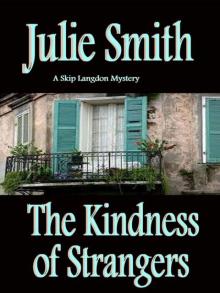 The Kindness of Strangers (Skip Langdon Mystery #6) (The Skip Langdon Series)
The Kindness of Strangers (Skip Langdon Mystery #6) (The Skip Langdon Series)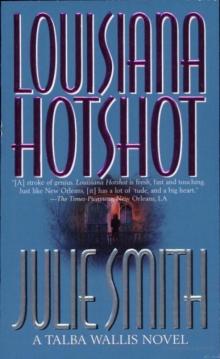 Louisiana Hotshot
Louisiana Hotshot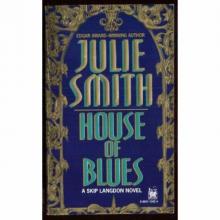 House of Blues
House of Blues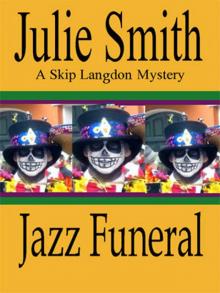 Jazz Funeral (Skip Langdon #3) (Skip Langdon Mystery) (The Skip Langdon Series)
Jazz Funeral (Skip Langdon #3) (Skip Langdon Mystery) (The Skip Langdon Series) Tourist Trap (Rebecca Schwartz #3) (A Rebecca Schwartz Mystery) (The Rebecca Schwartz Series)
Tourist Trap (Rebecca Schwartz #3) (A Rebecca Schwartz Mystery) (The Rebecca Schwartz Series)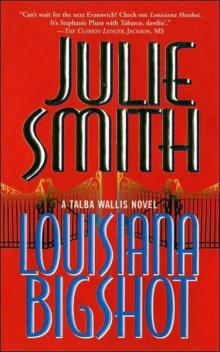 Louisiana Bigshot
Louisiana Bigshot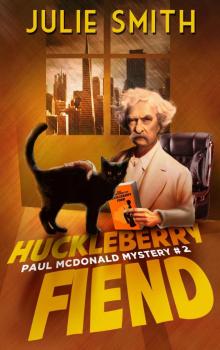 Huckleberry Fiend
Huckleberry Fiend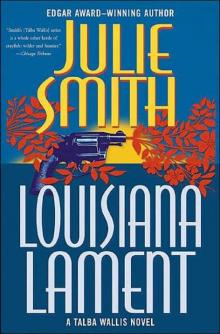 Louisiana Lament
Louisiana Lament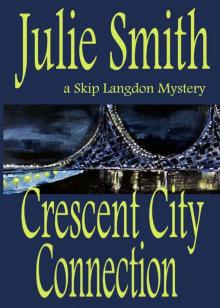 Crescent City Connection (Skip Langdon Mystery #7) (The Skip Langdon Series)
Crescent City Connection (Skip Langdon Mystery #7) (The Skip Langdon Series)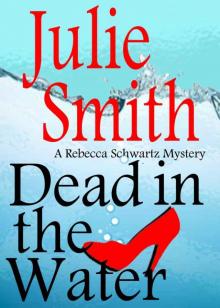 Dead In The Water (Rebecca Schwartz Mystery #4) (The Rebecca Schwartz Series)
Dead In The Water (Rebecca Schwartz Mystery #4) (The Rebecca Schwartz Series)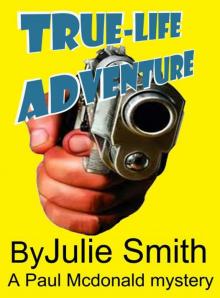 True-Life Adventure
True-Life Adventure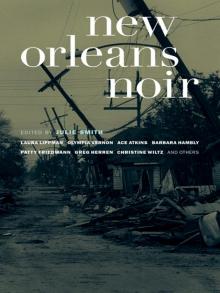 New Orleans Noir
New Orleans Noir